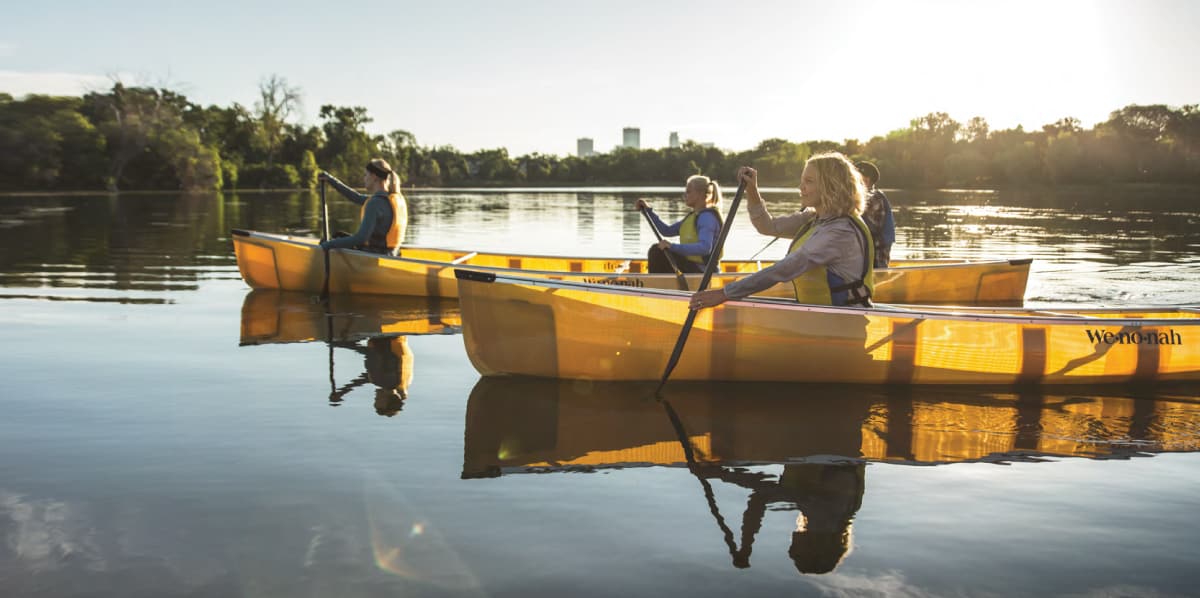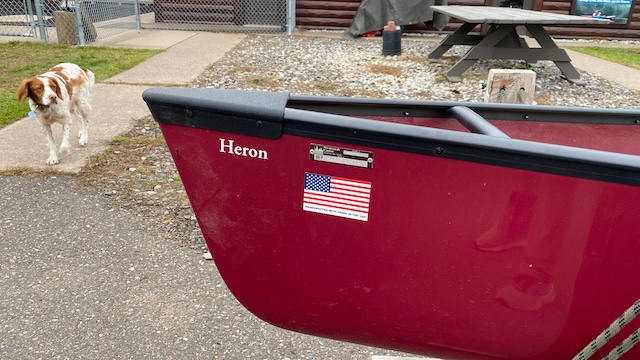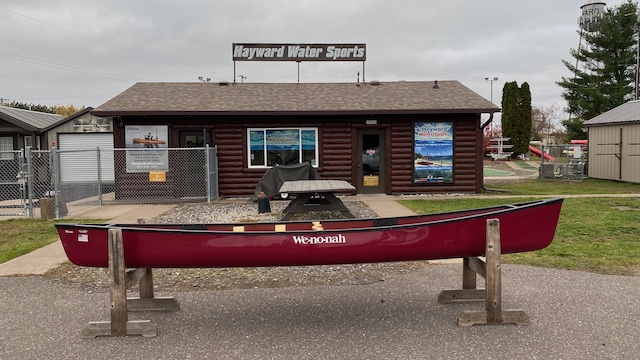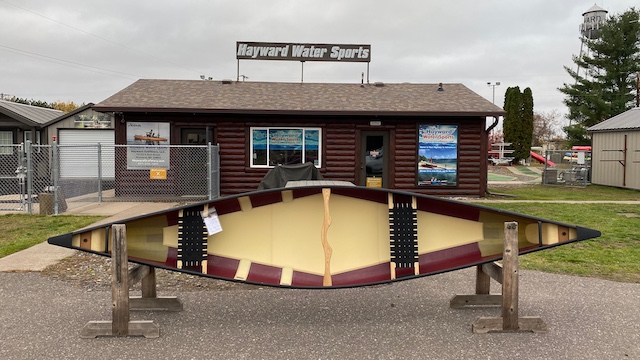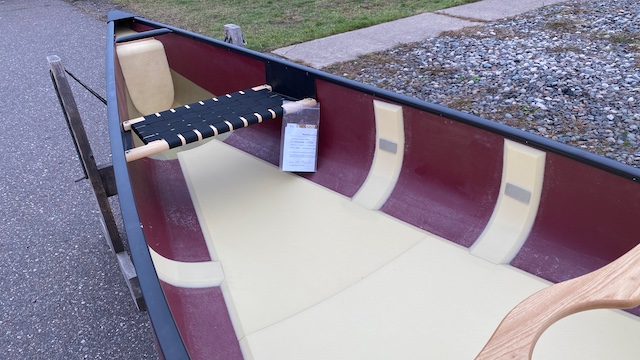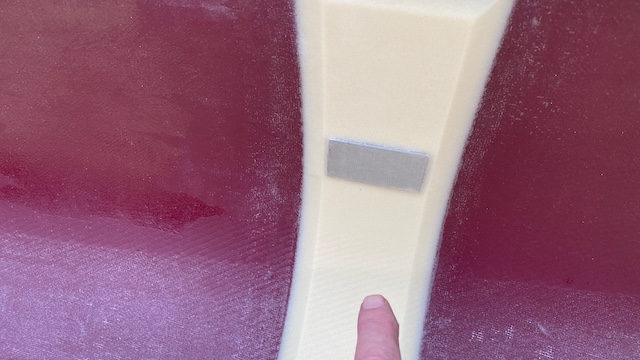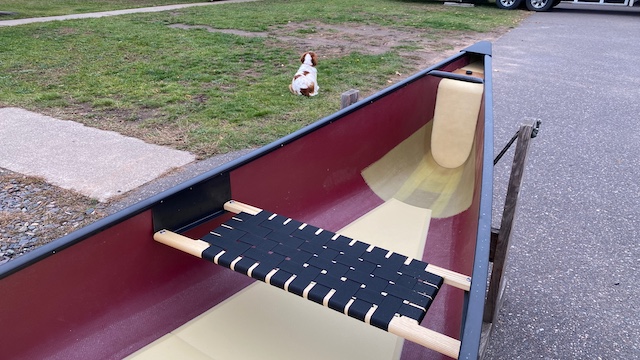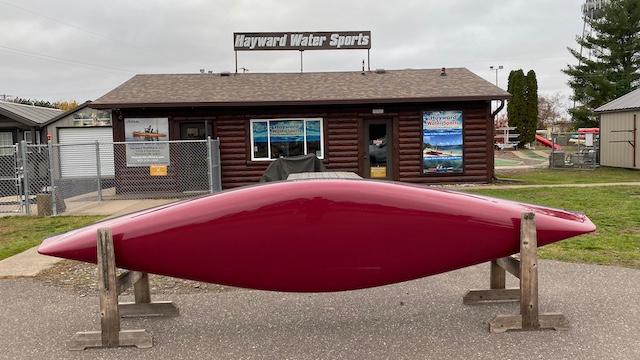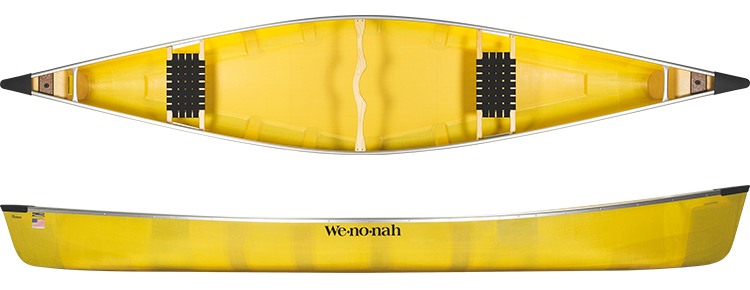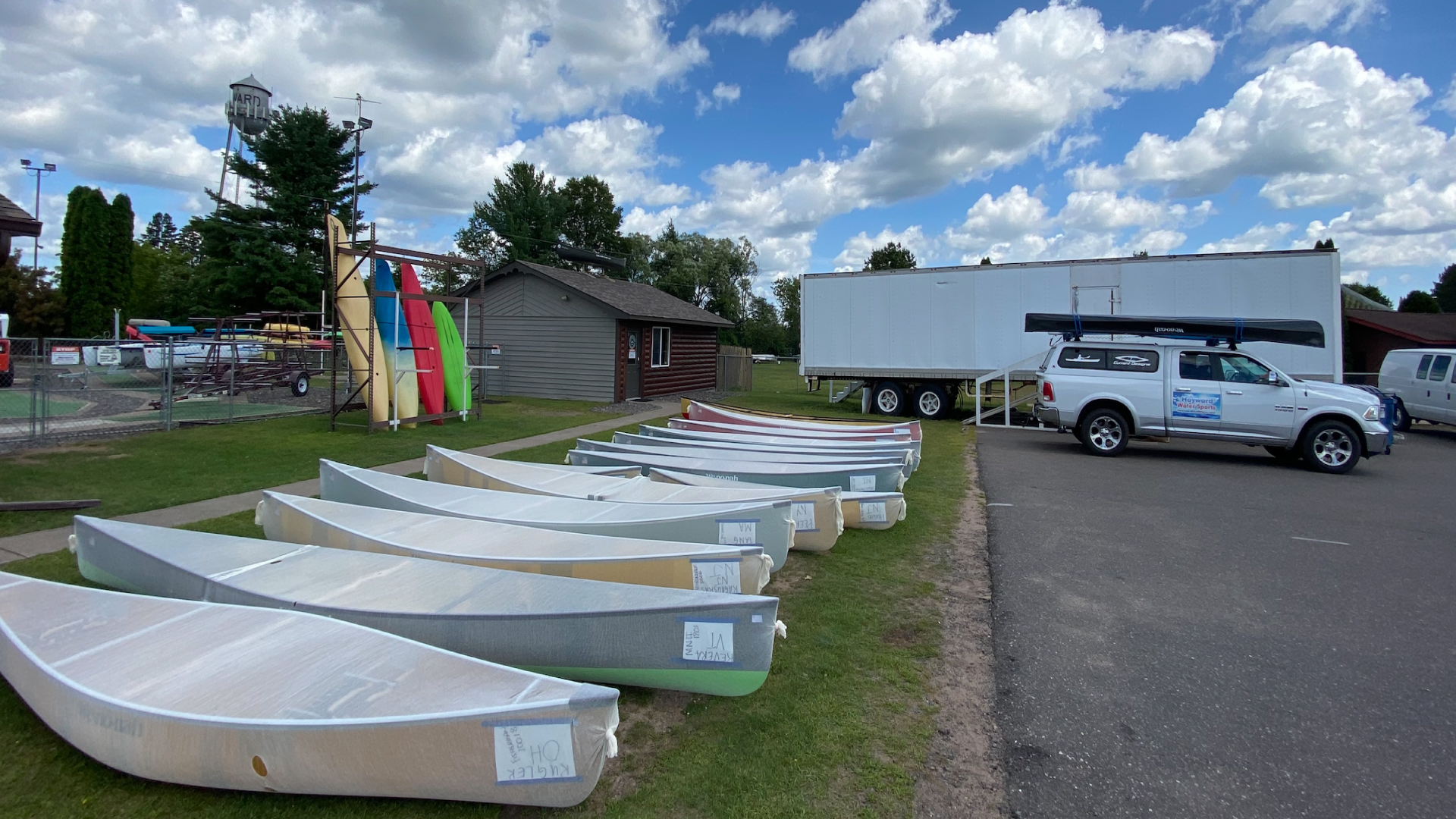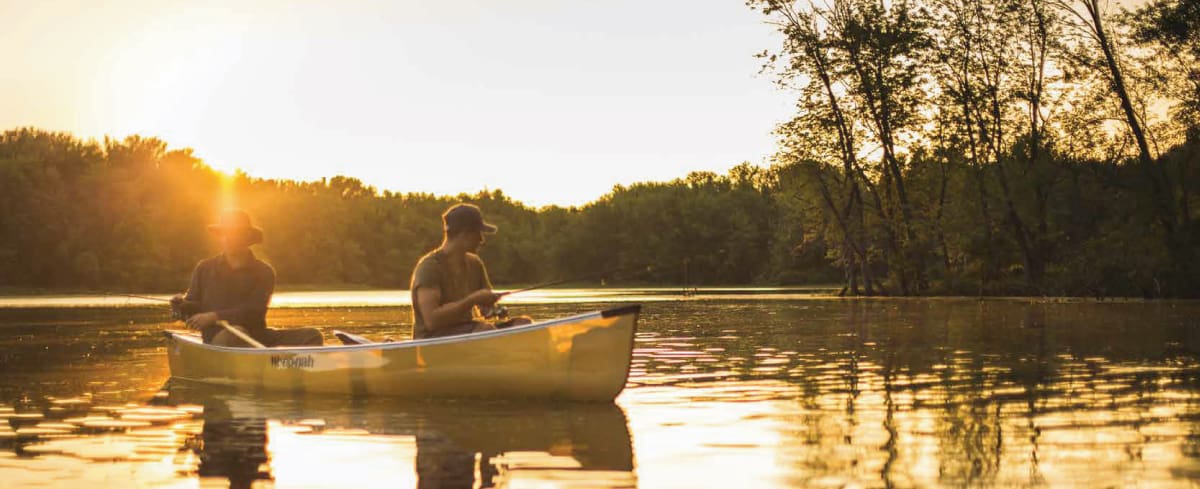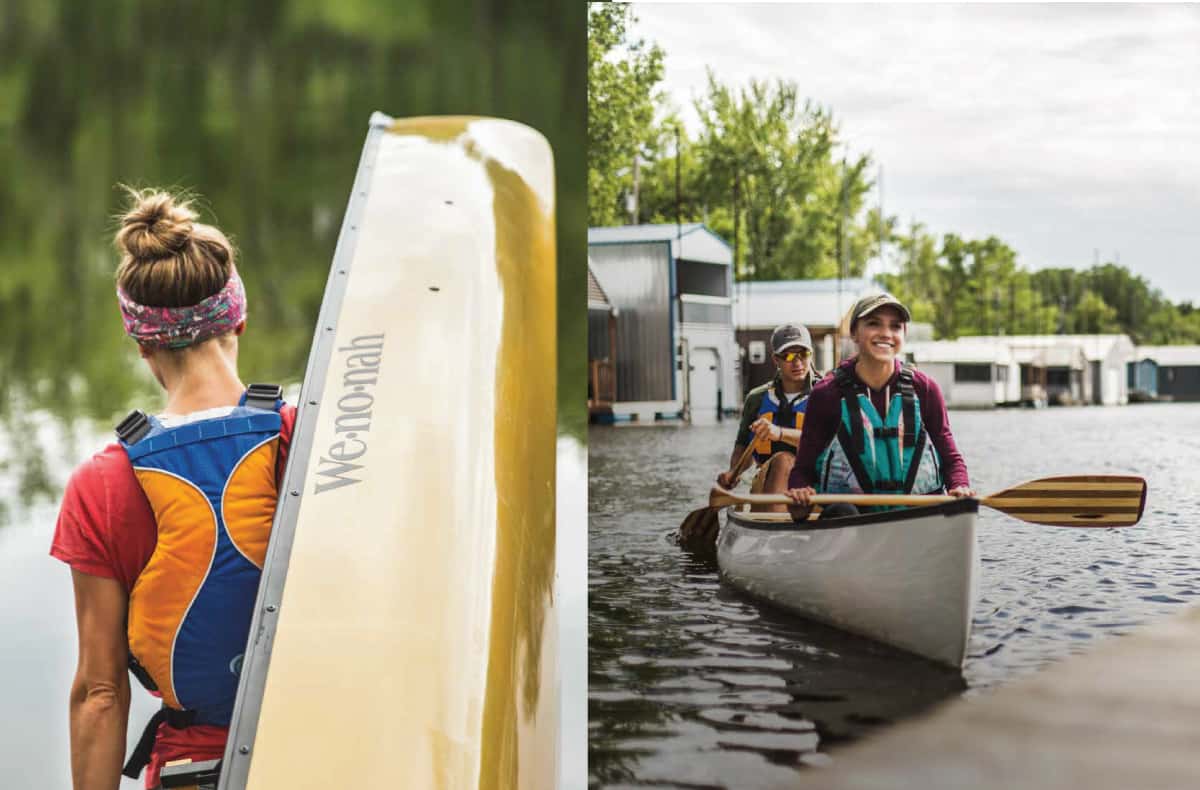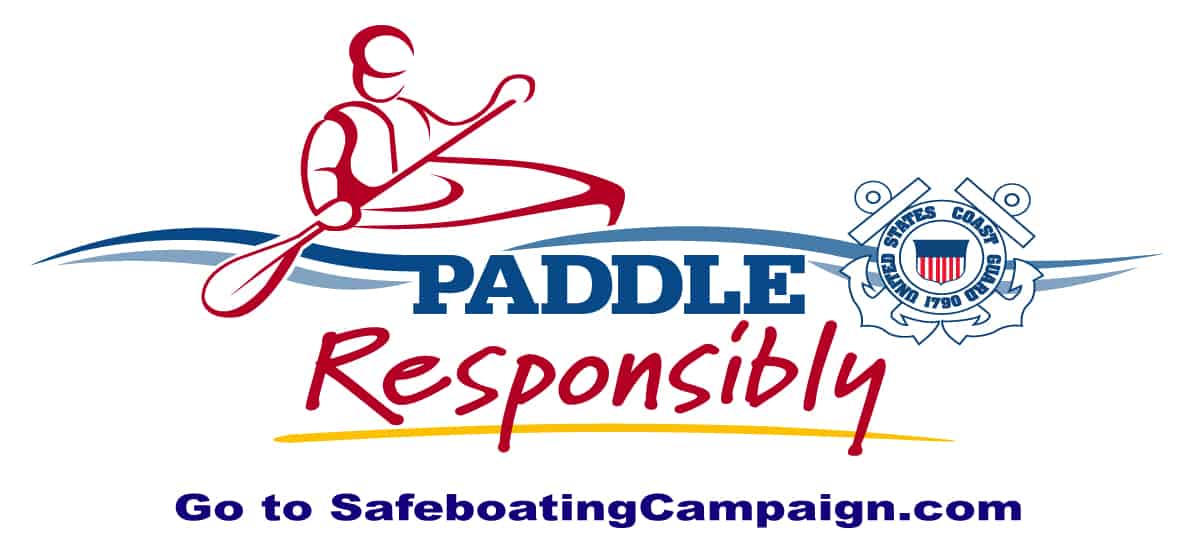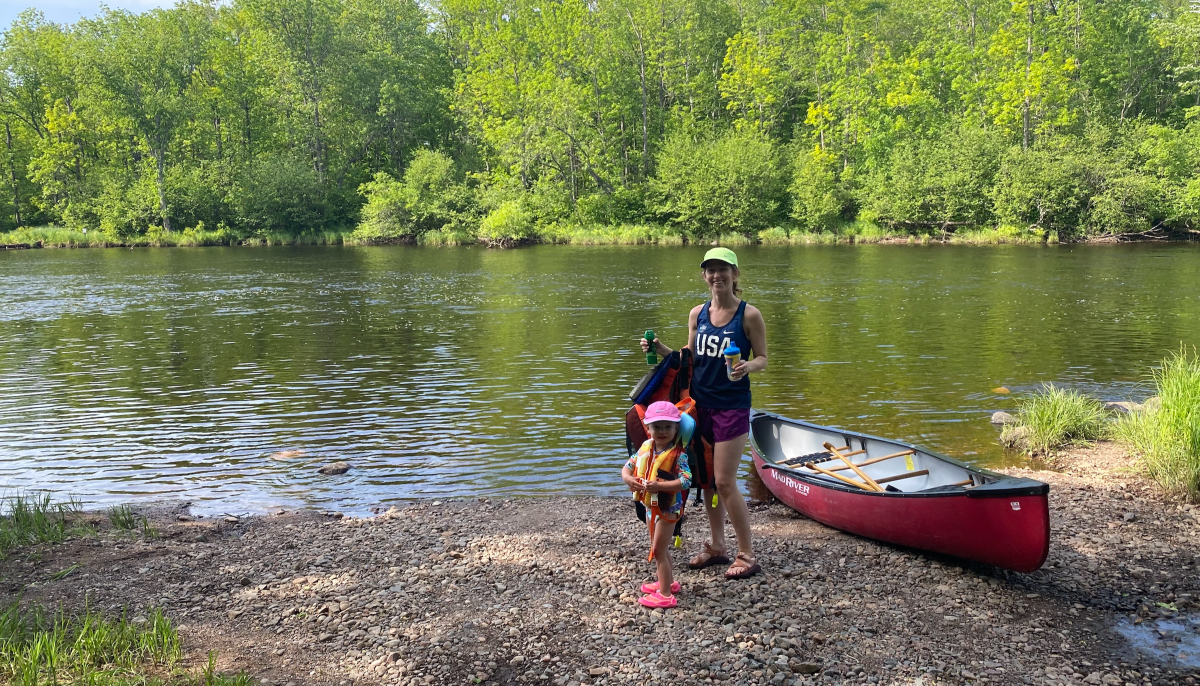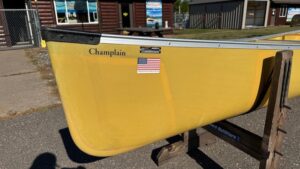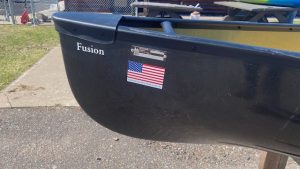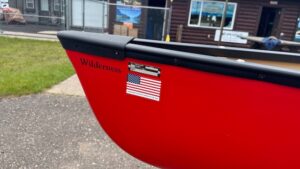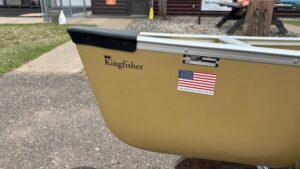![]()
General Touring / Heron
Life asks a lot of some canoes – like be ready for anything. The Heron is a compact, maneuverable tandem canoe that answers all requests. It’s the smallest tandem canoe in our General Touring family–a 15-foot version of our best-selling Spirit II. Like the Spirit II, the Heron is stable and efficient to paddle. It’s shorter length makes it highly maneuverable and perfect for small streams and quiet backwaters. Compact and lightweight, the Heron is ideal for lighter paddlers and smaller water.
CANOE RATINGS
DIMENSIONS
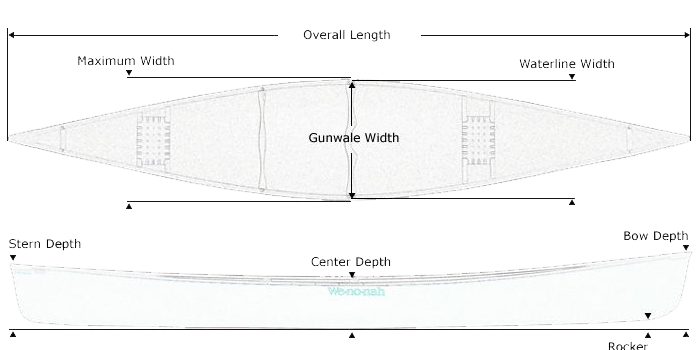
Click into the tabs below for more information!
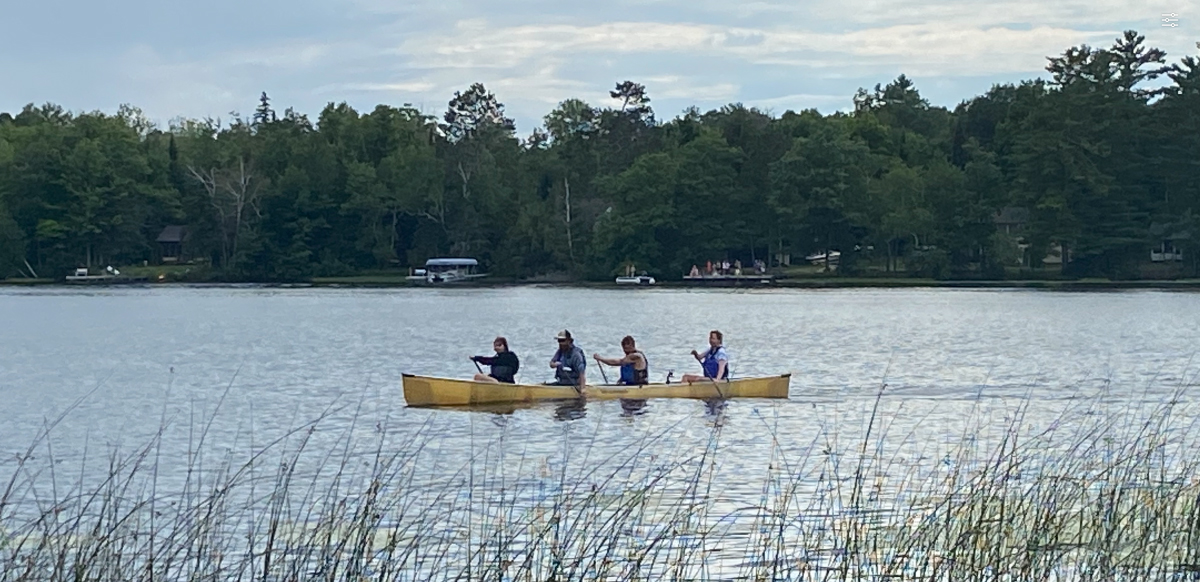
| How to Choose a Canoe | |||
|---|---|---|---|
| First, try to narrow down your search to one or two categories of boats. To do this, consider your priorities. How and where do you plan on using this canoe? What type of water are you going to paddle? How much gear are you likely to take along? How skilled are the paddlers? Find a Category below that best fits your basic needs: General Touring General Touring canoes are versatile boats that do everything well. For people who look forward to day trips with the family, fishing, easy weekend adventures, or a week spent camping, our General Touring canoes are the best choice. Stable, maneuverable and able to haul a fair amount of gear, these canoes build confidence in developing paddlers. They vary in length from 15 feet to 18 feet, but all have generous width and depth, a shallow-arch bottom and 1 or 2 inches of rocker. Performance Touring Performance Touring canoes are sleek and efficient. They track like an arrow and glide like no other – perfect for paddling from the wilds of Canada’s Quetico Provincial Park to the far-reaching stretches of the Amazon. From bow to stern, our Performance Touring canoes are ingeniously contoured for efficiency. They are longer than our General Touring canoes (from 16’6” to 18’6”), slimmer (33” – 35” wide) and have average depths to shrug off wind. Arched bottoms increase the hull’s speed. They reward good paddling technique by gliding farther on each stroke than any other category of canoe. Down River Down River canoes are remarkably versatile and give you a solid advantage in all kinds of fast moving water, from the shallow sweeps of prairie rivers like the Niobrara to the meandering currents of smaller rivers like the Root River in Southeast Minnesota. These versatile boats differ in capacity, but all have at least two inches of rocker, generous flare to the sides and depth in the hull. More rocker equals greater maneuverability – a valuable characteristic in moving water. It also softens the effects of crossing sharp eddy lines, where contrary currents tug at your canoe. Down River canoes are also deep enough to run dry in lesser grade rapids and stable and seaworthy enough to not be bothered by external forces when handling quick moving waters. Sports & Leisure Sports & Leisure canoes are designed for people with a purpose – fisherman, hunters, photographers, bird watchers and others who want a stable canoe that’s easy to maneuver and manage in and out of the water. Sports & Leisure hulls are relatively short, wide and deep. They have full bottoms for a solid “footprint” in the water, making them stable and secure for paddling with active children or a jumpy dog. Deep enough to haul all the gear you need; they’ll remain stable in choppy water. Expedition Expedition canoes are for those that dream of exploring Baker Lake in the Arctic or heading to the far reaches of the Quetico. Before the dreams are turned into realities, many adventurers first turn to our Expedition series. These long, deep hulls are built to go the distance and perform well under all kinds of conditions. They have the ability to hold heavy loads and are contoured for efficient paddling when packed full. They’re seaworthy when wind and spray kick up so your gear stays dry. DESIGN & PERFORMANCE A canoe's performance is built into its design. The dimensions and shape of the hull above and below the water line and other design variables, determine how efficient, stable, roomy, maneuverable and seaworthy each canoe is. Of the more than two dozen models in this catalog, no two perform the same. A sports and leisure canoe that's stable and easy to paddle will have a different length, width, rocker and streamlining than a performance canoe designed to go fast and glide far. Even within the same category of canoes, subtle differences in design will change their performance. PERFORMANCE ASPECTS EFFICIENCY How far the canoe goes with each stroke. A long glide following the stroke means the canoe is very efficient. MANEUVERABILITY How easily the boat will turn. A lot of boats are specifically designed to “Track Straight.” We always say it's much easier to turn a boat than keep one going straight. CAPACITY How much gear and weight the canoe can hold. STABILITY “Initial” stability is how tippy a boat feels when you're getting in and out of it or when it's resting on calm water. “Final” stability is how resistant a canoe is to tipping even when leaned or in high winds and waves. SEAWORTHINESS How dry, capable and predictable the canoe is in large waves or rough waters. | |||
| Anatomy of a Canoe | |||
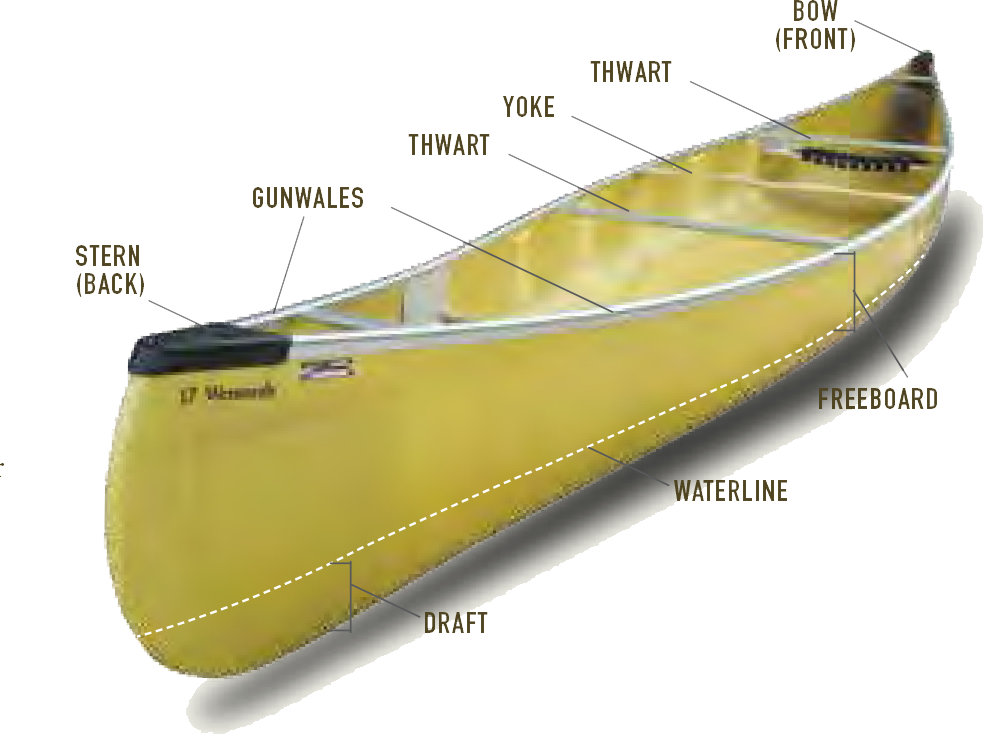 | |||
| DESIGN CHARACTERISTICS LENGTH Longer canoes track straighter, travel faster and glide farther. They also hold more and perform better when loaded. Shorter canoes turn easily and are great for paddling on tight streams. Even a 6" difference in length can make a dramatic difference in canoe performance. Remember that in most cases longer is better, as it is always easier to turn a canoe than keep one going straight. DEPTH Adding depth to the center of the hull creates more freeboard, which adds capacity and seaworthiness. Adding depth to the bow or stern helps to fend off waves or spray. WIDTH A wider hull has a higher initial stability, but requires more effort to paddle. A narrow hull requires less effort to paddle, but has less initial stability. Width also increases capacity, although not as much as length. STABILITY Cross-section shape determines initial and final stability. Initial stability is how stable a canoe feels when upright in calm water. Final stability is how resistant a canoe is to capsizing even when on edge. | |||
| FLAT BOTTOM Typical for bargain canoes. Flat-bottomed hulls have initial stability, but are unpredictable on waves or if leaned beyond a critical angle. |  | ||
| SHALLOW ARCH Characteristic of well-designed hulls. Good initial and final stability. Predictable and responsive when leaned or on waves. | 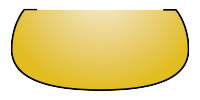 | ||
| SHALLOW "V" Shaped with a ridge in the center, like a keel. Stable but rides deeper and is less efficient than a shallow arch. May snag on rocks.. |  | ||
| FLARE A flared hull widens out near the gunwales. It deflects waves and resists capsize. | 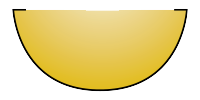 | ||
| TUMBLEHOME is how the hull curves in toward the gunwales and lets the paddler paddle close to the hull. Most evident in solo designs. | 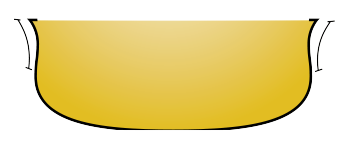 | ||
| Both flare and tumblehome may be built into different parts of the same hull. | |||
| FLAT BOTTOM VS SHALLOW ARCH | |||
| A canoe with a flat bottom hull feels steady when it’s upright on calm water. Flat bottom hulls have good initial stability. Paddlers feel little oscillation because the hull’s greatest possible width is in the water. | 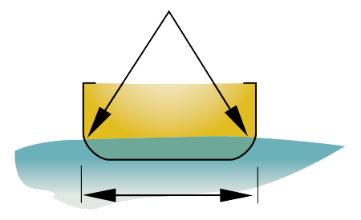 | ||
| When loaded, it rides lower but has about the same shape. It will be stable as long as it is upright in calm water. | 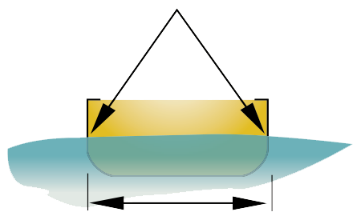 | ||
| When it leans, one side of the hull lifts entirely out of the water. With less surface area submerged, paddlers must work hard to keep it from tipping over. Flat bottom hulls have less final stability. | 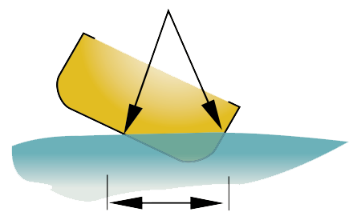 | ||
| When it leans, one side of the hull lifts entirely out of the water. With less surface area submerged, paddlers must work hard to keep it from tipping over. Flat bottom hulls have less final stability. | 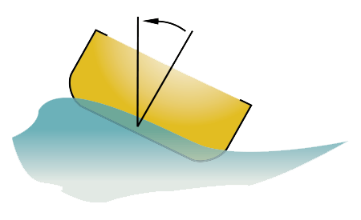 | ||
| A canoe with a shallow arch hull is widest just above the waterline. Because it oscillates slightly it doesn’t have the rock-solid feeling of a flat hull. | 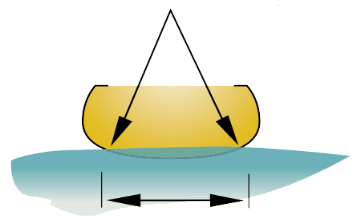 | ||
| When loaded, the weight presses the widest part of the hull into the water, which makes the canoe more stable. | 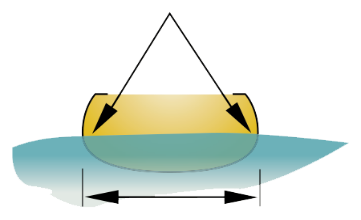 | ||
| When it leans, both sides of the shallow arch hull stay in the water, making it easier for paddlers to balance. | 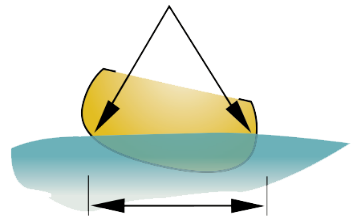 | ||
| A shallow arch hull presents less resistance to waves and rocks less. Paddlers easily maintain balance. | 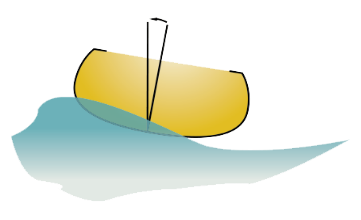 | ||
| ENTRY LINE The entry line is the sharpness of the bow. Blunt entry lines resist impacts better, which is why whitewater canoes generally have blunt entry lines. Sharper entry lines improve the hull's efficiency and tracking. | 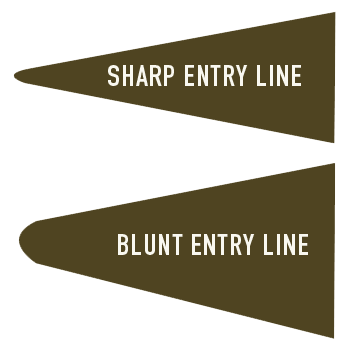 | ||
| STREAMLINE AND FULLNESS Different canoes with the same load can require more or less effort to paddle, depending on streamlining and fullness. How fast or how gradual the hull widens influences speed, capacity and stability. A hull that widens gradually and smoothly is more efficient. | |||
| FULLNESS - Fisherman |  | ||
| STREAMLINE - Prism |  | ||
| ROCKER This describes the way some hulls curve up at the ends, like a rocking chair. Rocker influences a canoe's maneuverability. Longer canoes with some rocker will maneuver like much shorter canoes. Canoe with a lot of rocker turn more easily, which is why whitewater and down river canoes have steeply rockered ends. Canoes with very little rocker will track straighter. | |||
| MINIMAL - Escape |  | ||
| MODERATE - Heron |  | ||
| HEAVY - Prospector |  |

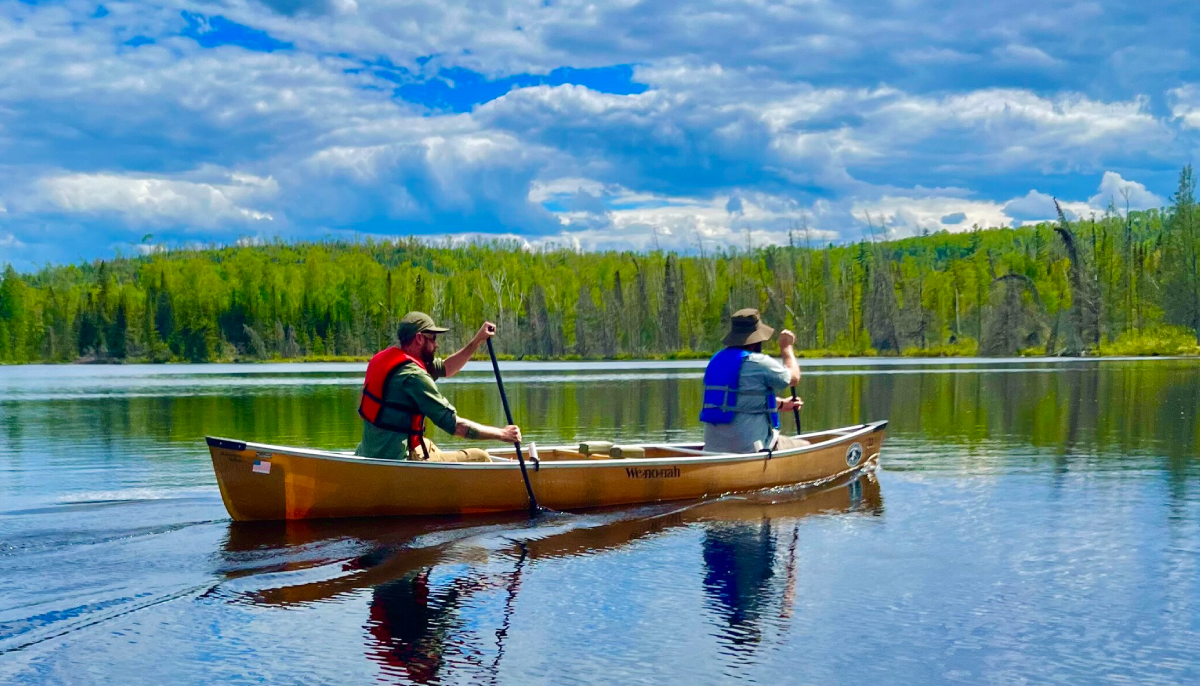
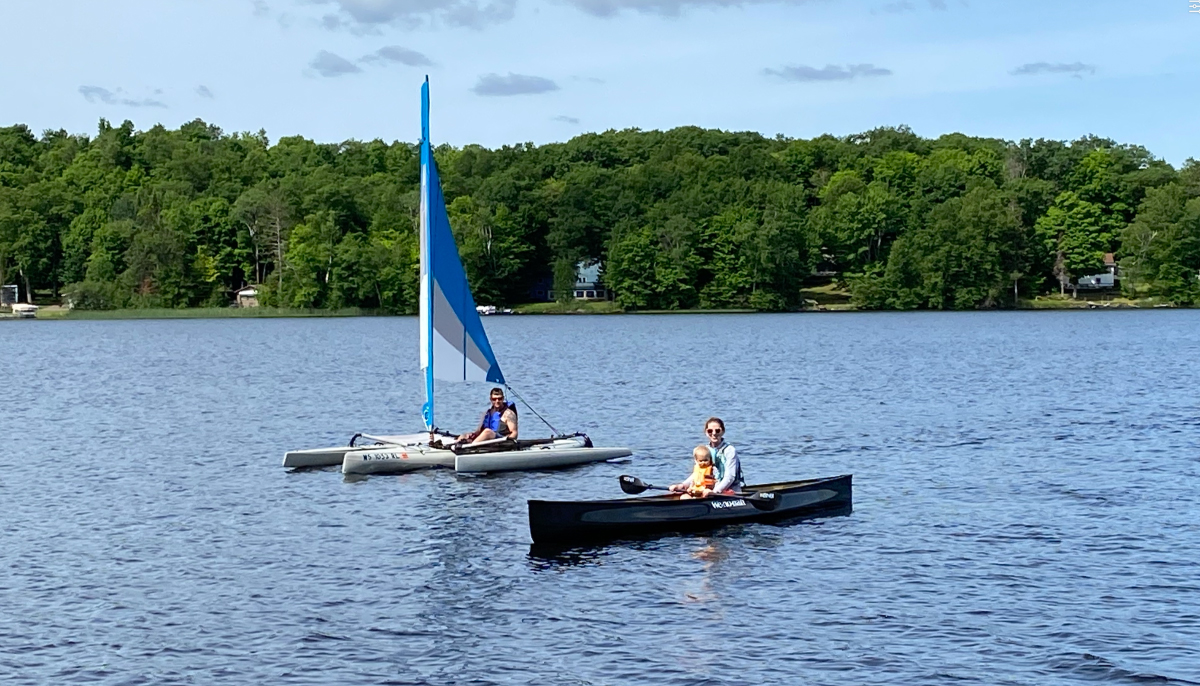
About Wenonah Canoe
By Choosing to Stay, we can
JOURNEY FARTHER
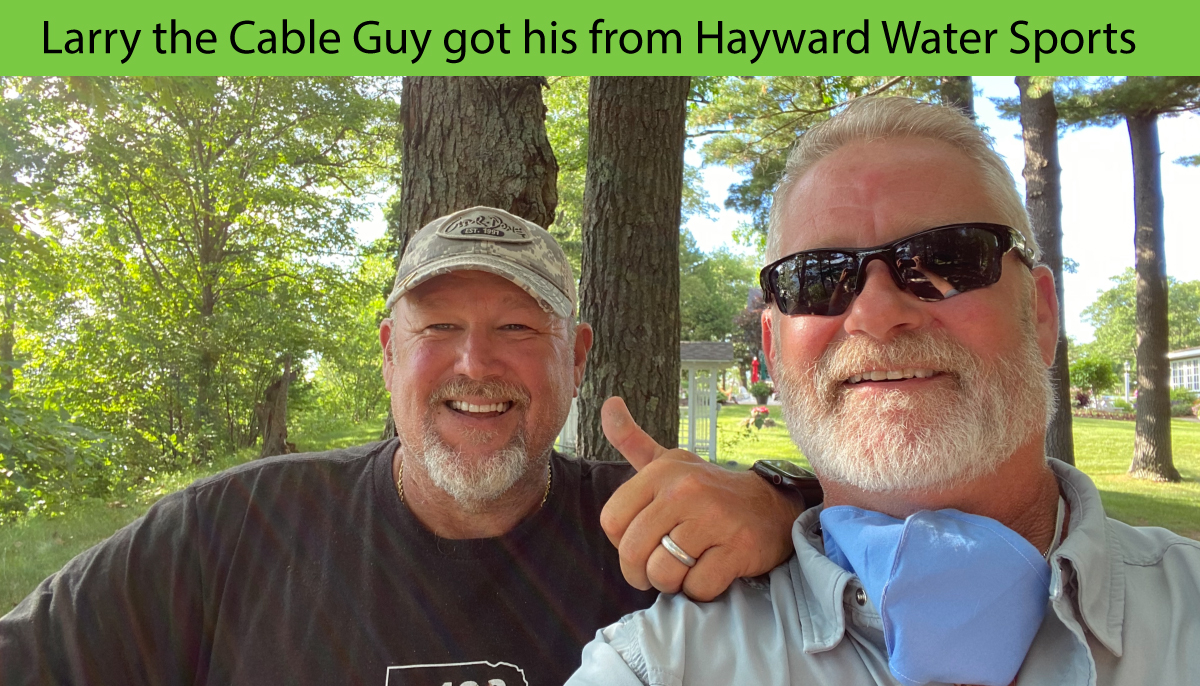
| Item # | Description | Retail | Cash Price | Savings | Saving % | Any Card Price | ||||||
|---|---|---|---|---|---|---|---|---|---|---|---|---|
| Buy a Kayak and get 10% off of a paddle and PFD (does not include already discounted paddles below) | ||||||||||||
| Buy a Kayak and get: (In Stock Only) | ||||||||||||
| 220-2402 | Bending Branches Impression | 275 | 150 | 125 | 45% | 155 | ||||||
| 1951 | Buy an Aspire, get a free cockpit cover | 50 | 0 | 0 | 100% | 0 | ||||||
| Item # | Description | Retail | Cash Price | Savings | Saving % | Any Card Price |
|---|---|---|---|---|---|---|
| 2289 | M&M 12.6 with Bag - Used - 21 lbs! Nothing Lighter! | 2,800 | 750 | 2,050 | 75% | 775 |
| Buy any SUP and get 10% off of your paddle and pfd |
DEALS ON PADDLING GEAR AND ACCESSORIES
